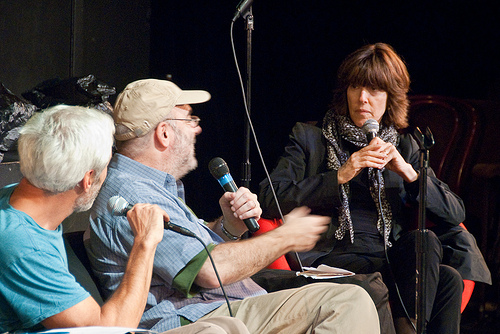“I have many symptoms of old age,” Nora Ephron wrote in her final book I Remember Nothing and Other Reflections. “I was not at Woodstock, but I might as well have been because I wouldn’t remember it anyway.”
Humor like this may not change the world. Wrapped in a pink and aquamarine dust jacket, I Remember Nothing, Ephron’s final book, is tempting to underrate. Critic Janet Maslin did just that; calling the book “a nifty airport read” in her New York Times review. To end the story there, though, would miss the point.
For Ephron, writing was also not about revolutionizing the medium; the structure of mainstream screenplays was to her advantage.
Ephron was not a politician; she never promised world peace or raised awareness. Rather than aching for gravitas, she made a career of evading it. For Ephron, writing was also not about revolutionizing the medium; the structure of mainstream screenplays was to her advantage. Her work was formulaic, but few people did formula as well as Ephron, whose movie scripts—including When Harry Met Sally (1989) and Sleepless in Seattle (1993)—serve as paragons for the romantic comedy genre.
More often than not Ephron was writing about aging, divorce, and death; the subjects that consumed much of her career are murky and dark. But the effect of Ephron’s work is nothing of the sort. More often than not, her tone is as light and effortless as the Belgian waffles she so enjoyed.
In spite of her delivery, Ephron’s life was far from lemon meringue. When she started writing in 1962, journalism in New York was much like the boys’ club of advertising portrayed in Mad Men. “Magazines like Esquire and New York were the zeitgeist,” she wrote in I Remember Nothing, “and the (mostly) men who wrote for them were cocky and full of beans. They thought they had invented non-fiction, which they hadn’t, and they even thought they had invented hanging out together in restaurants and staying up late.”
She wasn’t a perfect humorist. At times, her punch lines fell flat. But when Ephron was on, her words became part of American vernacular.
In an era of serious feminist polemics like The Feminine Mystique and “The Redstockings Manifesto,” Ephron learned to assert herself with wit. It was humor that helped land Ephron her first writing job (at the New York Post); humor that helped her survive divorce and professional disappointments; and humor that fueled her more recent writing in the New Yorker. She wasn’t a perfect humorist. At times, her punch lines fell flat. But when Ephron was on, her words became part of American vernacular. “There are two kinds of women: high maintenance and low maintenance,” says Billy Crystal’s character in When Harry Met Sally, “You’re the worst kind; you’re high maintenance but you think you’re low maintenance.”
At her best, Ephron was an exemplar of what George Orwell might call good writing. She avoided pretension and she didn’t complicate. “I married a journalist,” she wrote in I Remember Nothing, “and that didn’t work. But then I married another, and it did.” Two men, one happy ending.
Ephron was able to be democratic and to avoid dilution at the same time. When discussing politics, for example, she doesn’t add “Heckuva Job” or “folks” to her language to communicate with Middle America. Instead, Ephron spells out reality with a simplicity that would make Tea Party candidates drool: “People in Washington don’t talk about anyone who doesn’t live in Washington, and that’s the truth.”
There are telling similarities between Ephron and Julia Child, the subject of her 2009 film Julie & Julia. With her straightforward—albeit kooky—style, Julia Child brought French cuisine into the homes of America. Ephron, using simple ingredients, whipped up an oeuvre about aging, heartbreak, and modern life. It may read with the ease of an airport bestseller, but this collection has more in common with Zadie Smith’s essays than Chelsea Handler’s. Writing that balances weight and wit like this is deceptively difficult, but Ephron’s wit arrives effortlessly, appearing as if by chance. If the end result feels sometimes feels too familiar, it is only because we know her voice so well. She may have claimed that she remembers nothing, but we know Ephron’s recipe by heart.

